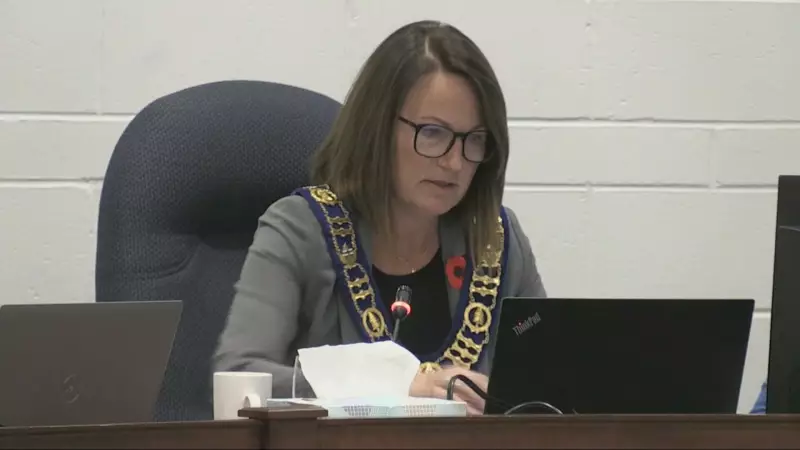
Tensions reached a boiling point at Springwater Township council this week as explosive allegations of back-room deals and procedural misconduct surfaced during a contentious debate over boundary changes. The normally staid municipal meeting transformed into a battleground of accusations and counter-accusations that laid bare deep divisions within the council.
Mayor Blasts "Secret Meetings" Allegation
The controversy erupted when Councillor Brad Thompson openly accused the mayor of engaging in improper discussions about the boundary review outside of formal council proceedings. "There have been conversations happening that shouldn't be happening," Thompson declared, pointing to what he characterized as attempts to influence the process before it reached public discussion.
Mayor Jennifer Coughlin fired back vehemently, dismissing the allegations as "completely false" and "disheartening." She maintained that all discussions had followed proper channels and accused her detractors of attempting to derail the democratic process.
Procedural Battle Over Voting Process
The conflict deepened when councillors clashed over the voting mechanism for the boundary decision. A motion to conduct the vote through a recorded ballot—which would make each councillor's position public—sparked intense debate about transparency versus council solidarity.
Deputy Mayor George Cabral argued forcefully for the recorded vote, stating, "The public has a right to know where each of us stands on this important issue that will shape our community's future." However, other council members pushed back, suggesting that such an approach could undermine council unity and create unnecessary division.
Broader Implications for Municipal Governance
This heated exchange represents more than just a disagreement over boundary lines—it strikes at the heart of municipal governance principles. The allegations of back-room dealings raise serious questions about transparency in local government decision-making processes.
Community members watching the proceedings expressed growing concern about the apparent breakdown in collegiality among their elected representatives. One longtime resident noted, "When our council members are more focused on fighting each other than serving the community, everyone loses."
What's Next for Springwater?
As the boundary review process moves forward, the council faces the challenge of rebuilding trust both among its members and with the public they serve. The outcome of this conflict could set important precedents for how future contentious issues are handled in the township.
The situation remains fluid, with observers watching closely to see whether council members can find common ground or if the divisions will continue to deepen, potentially affecting other municipal business moving forward.





